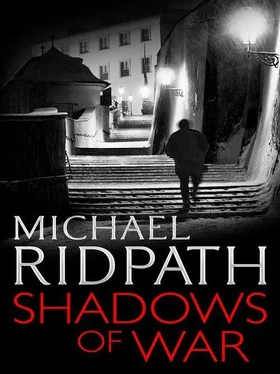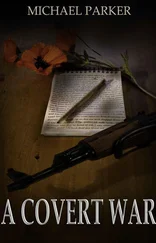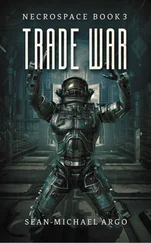And she felt guilty about Conrad. About betraying him with Klaus. About her own feebleness. About dragging him down with her. She couldn’t marry him. He came from a wealthy aristocratic British family. She was, now, a penniless, worthless Jew. Who had deceived him. Who had run away from her country.
She knew he loved her. And she loved him, that was the worst part. That was why she didn’t want to drag him down with her. She remembered how in Berlin he had accused her of using her relationship with him to get her father out of jail, in the way she had used Klaus. He had been right.
She had tried to explain all this to him, but he hadn’t understood. Sometimes, often, she thought: Why don’t I just say yes and marry him? In the old days, she might have done — she would have done. But now? When she had first been locked up in Moringen in 1933, she had coped well mentally. But after Klaus had discovered her affair with Conrad, he had had her arrested. The solitary confinement in Sachsenhausen and then in Lichtenburg Castle had finally broken her spirit.
Conrad couldn’t help her now; she was beyond help. He would lead a much better life without her. She could at least give him that; it was all she could give him.
Life was a miserable grind, with no end in sight, which was why she had persuaded her parents to go to New York. America was the country for fresh starts. Yet it was proving extremely hard to get in, and even the process of trying was making her feel guilty. There were so many Jews in Germany and Austria whose need was greater.
But if she could do something for Captain Foley or one of his colleagues in the secret service, maybe there would be some point to her life after all.
Leiden
The bus from Schiphol Airport dropped Conrad by the railway station, and he walked towards the centre of the town, passing canals, barges and a couple of windmills along the way. He was looking forward to seeing Theo, to finding out what the hell had happened at Venlo.
On the bumpy flight over the North Sea, he had mulled over what his father had said to him the night before. The argument over peace or war had been inevitable, but it rattled him, nonetheless. He wished that somehow he could get his father to see his point of view.
Lady Oakford always said that of all her children, Conrad was most like her husband. As a boy he had always been proud of that, because he was proud of his father. There could be no better badge of distinction in the post-war years than a Victoria Cross. But it wasn’t just that; there was bravery in Lord Oakford’s pacifism, in his willingness to take on a cause that was unpopular with his contemporaries and to pursue it no matter what. Lord Oakford had principles, and so did his son. And in Spain Conrad had discovered that he had bravery, or at least the ability to channel his fear into a spur to defeat the enemy and protect his comrades. When Conrad had voted against the motion that he would fight for King and Country at that infamous debate in 1933, he knew his father was proud of him; he could almost feel the old soldier standing there at his shoulder in the Union.
Then things had gone wrong. Lord Oakford had never really liked Veronica and had disapproved of their marriage. He had certainly disapproved of Conrad’s decision to go and fight in Spain, and then to join the British Army. His father had been right about Veronica. He may also have been right about Spain: although Conrad had no doubts about opposing Franco, he had seen the government forces undermined by Soviet commissars. David Griffiths and Harry Reilly had both taken bullets in the back while they were storming Mosquito Hill, bullets from a Popular Army unit with Russian commissars.
But Conrad was damned sure his father was wrong about appeasing Hitler.
Then there was Anneliese. Was his father right or wrong about her? Perhaps she didn’t need Conrad after all, at least not for a while. But he hated the idea of abandoning her when she seemed so desperate.
He had no idea what to do.
He turned into the Rapenburg, a canal flanked by old university buildings. It was a Saturday, so the student bicycle count was down on his previous visit, but they still buzzed about him. The sun shone low over the gables, glinting off the still water of the canal and the damp orange leaves on the street running along its edge.
The Academy was easy to spot, a lofty hall that had the appearance of a red-brick religious building from the seventeenth century, guarded by high iron gates. Conrad walked past and then doubled back, checking for watchers. He couldn’t see any, but then he wasn’t a professional and they probably would be. Somehow he doubted that in its present circumstances the British secret service in The Hague, or what was left of it, would have decided that following Conrad was its chief priority, but perhaps the Gestapo would be on his trail. He had no idea: he would have to rely on Theo.
He walked through the iron gates and stopped at what looked like a porter’s lodge. The porter didn’t speak English but was expecting him. He led him up some ancient stairs and showed him into a small room with nothing but a table and four chairs in its centre. The porter shut the door behind him.
There was something about the proportions of the room that reminded Conrad of a cell. He was drawn to the table, which was made of old gnarled wood and covered with carvings, initials and dates. He examined them: the oldest he could see was 1641. The walls, too, were almost entirely covered with signatures from floor to ceiling.
Was this some kind of bizarre interrogation room? Was he going to be grilled by the Dutch secret police? Conrad shuddered as he remembered the night he had spent in the basement of the Gestapo headquarters on Prinz-Albrecht-Strasse, with its own sad graffiti. His thoughts turned to Payne Best and Stevens, and Klop if he was still alive.
After five minutes the door opened and a short man with thick dark hair, a full greying moustache, and a waistcoat and watch chain bustled in.
‘Mr de Lancey? I am Professor Hogendoorn.’ The man gave a sort of high-pitched giggle as he held out his hand. ‘Do you speak German, by any chance? My English is not so good.’
‘Certainly,’ said Conrad in that language.
‘Excellent,’ said the professor. ‘I hope you don’t mind waiting here.’ The professor giggled again. ‘It’s known as “The Sweatbox”. It’s where the students wait before they defend their theses in the room next door. As you can see they carve their initials while they are at it. It seemed a proper place for a spy to wait.’ Another giggle. ‘More importantly, it’s empty and we cannot be overheard.’
‘I’m not exactly a spy,’ said Conrad, stifling his irritation.
‘No, of course not. Herr von Hertenberg said you were an academic from Oxford University, a historian. But I think if anyone here asks you, you should say you are a chemist. Polymers. That’s my speciality.’
‘I will do that,’ said Conrad. ‘Now, how do I meet Herr von Hertenberg?’
Professor Hogendoorn ignored the question. ‘It’s good to meet an Englishman who appreciates modern Germany. But are you English? De Lancey sounds French to me.’
‘Huguenot,’ said Conrad. ‘My ancestors fled France a couple of hundred years ago. One of them fought at Waterloo, but not on the French side.’
‘Very wise of them,’ said the professor. ‘France’s democracy is even more decayed than England’s. As a scientist, it is clear to me that Germany represents the future. Strength, efficiency, progress. We Dutch should realize that. We are not so different from the Germans. We have the scientific knowledge. We should be their partners, not their enemy. Don’t you agree, Herr de Lancey?’
Читать дальше












